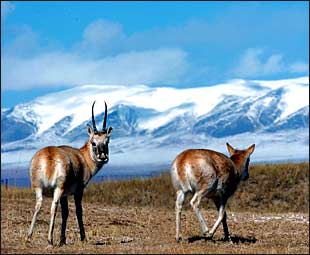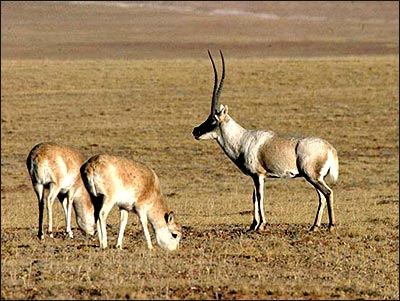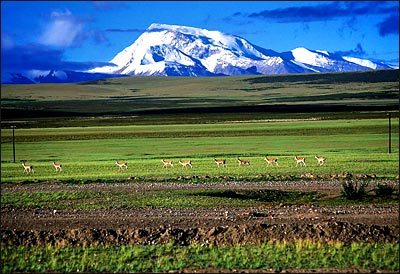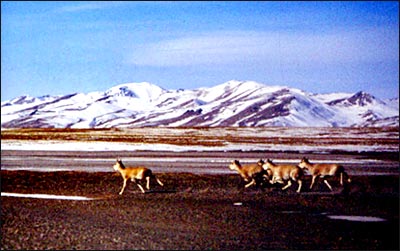| Home / Environment / Photo News | Tools: Save | Print | E-mail | Most Read |
| Protect Tibetan Antelope, Boycott Shahtoosh Shawls |
| Adjust font size: |
Officials from
The reserve's director Cega along with two conservation officials will leave for "Europe and the Unlike other wools, which can be sheared off an animal, the wool of a Tibetan Antelope can only be obtained by killing the animal. It takes three to five antelopes’ wool to make a single shahtoosh shawl. Roughly translated from Persian, shahtoosh means "the king of wools." A single shahtoosh shawl can cost as much as US$16,000 on the European market. The documentary, named "Chiru" by Beijing director Fu Jingsheng, shows how the animals are killed and how their wool are collected, and how China has cracked down on illegal poaching in recent years. "By attending the international documentary festival, we hope the poaching of these precious creatures will become an international concern," Cega said. Tibetan antelopes are mostly found in Poaching and human encroachment of their habitat has caused their population to shrink from several million to less than
Since 1979, the animal has been given the highest level of protection under the Convention on International Trade in Endangered Species (CITES). It is an international crime to kill, harm or trade Tibetan antelope or its body parts. Chinese conservation officials launched a campaign to crack down on illegal poaching of Tibetan antelopes in The region became well known following the release of the award-winning feature film, "Kekexili Mountain Patrol" by Chinese director Lu Chuan. It tells the true story of a journalist who joined a Tibetan volunteer patrol chasing poachers trading in antelope wool in Hoh Xil, which is spelled Kekexili in Mandarin Chinese. The film will also be screened during the OXDOX festival, said officials with nature reserve. (Xinhua News Agency March 17, 2007)
|
| Tools: Save | Print | E-mail | Most Read |
 |
| Related Stories |



